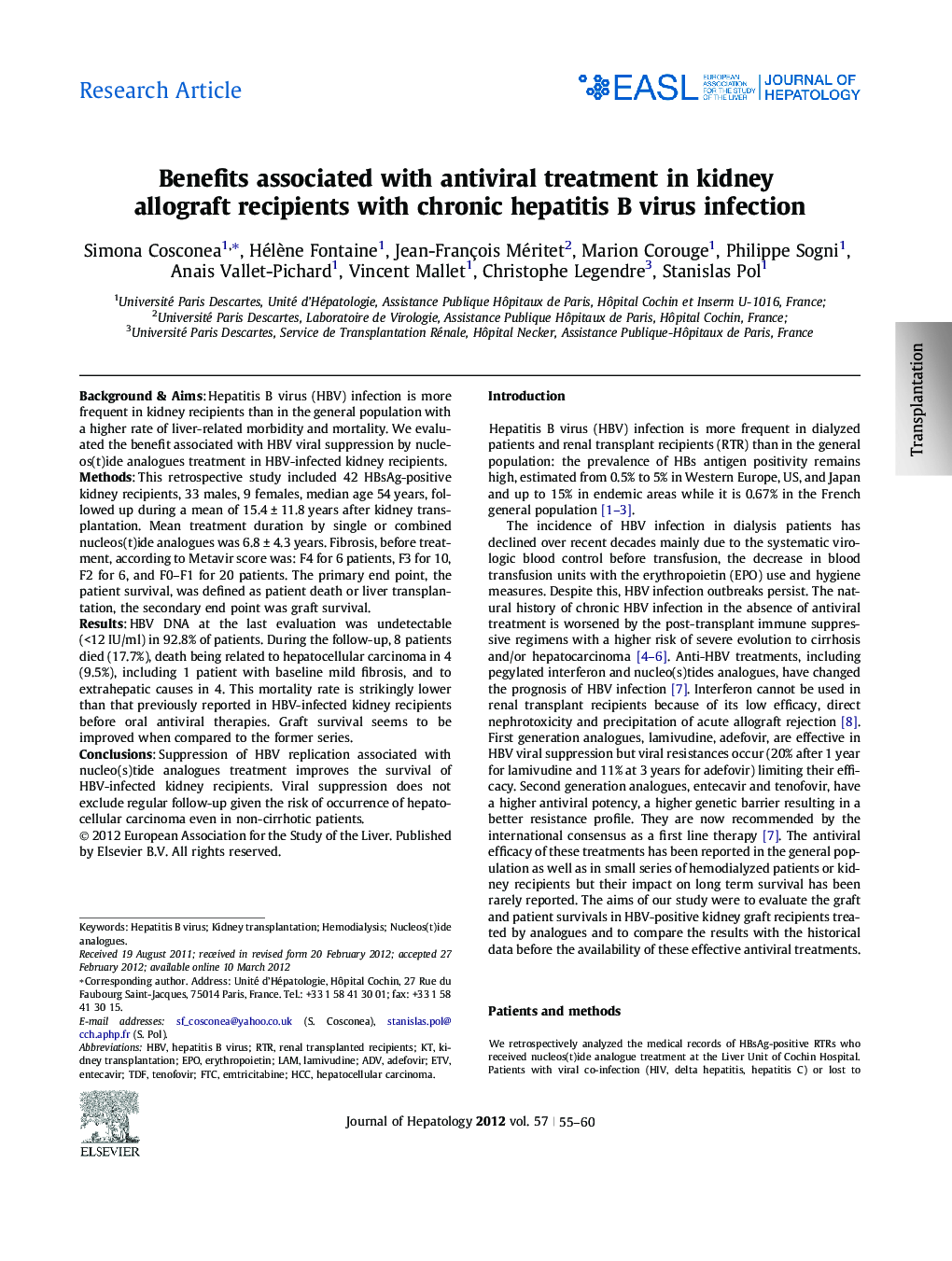| Article ID | Journal | Published Year | Pages | File Type |
|---|---|---|---|---|
| 6106792 | Journal of Hepatology | 2012 | 6 Pages |
Background & AimsHepatitis B virus (HBV) infection is more frequent in kidney recipients than in the general population with a higher rate of liver-related morbidity and mortality. We evaluated the benefit associated with HBV viral suppression by nucleos(t)ide analogues treatment in HBV-infected kidney recipients.MethodsThis retrospective study included 42 HBsAg-positive kidney recipients, 33 males, 9 females, median age 54 years, followed up during a mean of 15.4 ± 11.8 years after kidney transplantation. Mean treatment duration by single or combined nucleos(t)ide analogues was 6.8 ± 4.3 years. Fibrosis, before treatment, according to Metavir score was: F4 for 6 patients, F3 for 10, F2 for 6, and F0-F1 for 20 patients. The primary end point, the patient survival, was defined as patient death or liver transplantation, the secondary end point was graft survival.ResultsHBV DNA at the last evaluation was undetectable (<12 IU/ml) in 92.8% of patients. During the follow-up, 8 patients died (17.7%), death being related to hepatocellular carcinoma in 4 (9.5%), including 1 patient with baseline mild fibrosis, and to extrahepatic causes in 4. This mortality rate is strikingly lower than that previously reported in HBV-infected kidney recipients before oral antiviral therapies. Graft survival seems to be improved when compared to the former series.ConclusionsSuppression of HBV replication associated with nucleo(s)tide analogues treatment improves the survival of HBV-infected kidney recipients. Viral suppression does not exclude regular follow-up given the risk of occurrence of hepatocellular carcinoma even in non-cirrhotic patients.
